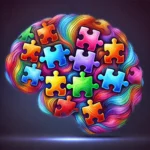Our sociological glossary is new; we are in the process of developing our online sociological glossary, with more terms to be added as we go along. If you think there is something we haven't added yet, please let us know.
Glossary
-
Marketisation of Higher Education
Marketisation refers to the application of market principles to universities, promoting competition, student choice, and league tables as key decision-making factors.
-
Mass Incarceration
Mass incarceration refers to the large-scale imprisonment of populations, often disproportionately affecting marginalised groups.
-
McDonaldisation
A concept from George Ritzer, McDonaldisation describes the standardisation and efficiency-driven organisation of society, modelled after fast-food chains.
-
Mechanical and Organic Solidarity
Émile Durkheim’s distinction between mechanical solidarity (traditional societies with shared values) and organic solidarity (modern societies with specialised roles and interdependence).
-
Mental Health in Higher Education
Mental health in HE is a growing concern, with increasing awareness of student stress, anxiety, and the need for university support services.
-
Meritocracy
Meritocracy is a social system in which success is believed to be based on talent, effort, and achievement rather than social background or privilege.
-
Meritocratic Ideology
Meritocratic ideology is the belief that success in education and employment is based purely on talent and effort, ignoring structural inequalities.
-
Methodological Individualism
Methodological individualism is the perspective that social phenomena should be explained by examining individual actions and choices.
-
Middle-Class Advantage in Higher Education
Middle-class advantage in HE includes access to cultural capital, private tuition, networking opportunities, and parental support, reinforcing educational inequalities.
-
Moral Regulation
Moral regulation refers to the ways society enforces shared norms and values, particularly through institutions like religion, law, and education.




